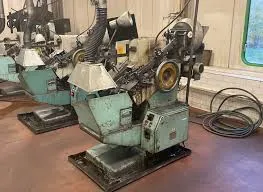
-
 Afrikaans
Afrikaans -
 Albanian
Albanian -
 Amharic
Amharic -
 Arabic
Arabic -
 Armenian
Armenian -
 Azerbaijani
Azerbaijani -
 Basque
Basque -
 Belarusian
Belarusian -
 Bengali
Bengali -
 Bosnian
Bosnian -
 Bulgarian
Bulgarian -
 Catalan
Catalan -
 Cebuano
Cebuano -
 Corsican
Corsican -
 Croatian
Croatian -
 Czech
Czech -
 Danish
Danish -
 Dutch
Dutch -
 English
English -
 Esperanto
Esperanto -
 Estonian
Estonian -
 Finnish
Finnish -
 French
French -
 Frisian
Frisian -
 Galician
Galician -
 Georgian
Georgian -
 German
German -
 Greek
Greek -
 Gujarati
Gujarati -
 Haitian Creole
Haitian Creole -
 hausa
hausa -
 hawaiian
hawaiian -
 Hebrew
Hebrew -
 Hindi
Hindi -
 Miao
Miao -
 Hungarian
Hungarian -
 Icelandic
Icelandic -
 igbo
igbo -
 Indonesian
Indonesian -
 irish
irish -
 Italian
Italian -
 Japanese
Japanese -
 Javanese
Javanese -
 Kannada
Kannada -
 kazakh
kazakh -
 Khmer
Khmer -
 Rwandese
Rwandese -
 Korean
Korean -
 Kurdish
Kurdish -
 Kyrgyz
Kyrgyz -
 Lao
Lao -
 Latin
Latin -
 Latvian
Latvian -
 Lithuanian
Lithuanian -
 Luxembourgish
Luxembourgish -
 Macedonian
Macedonian -
 Malgashi
Malgashi -
 Malay
Malay -
 Malayalam
Malayalam -
 Maltese
Maltese -
 Maori
Maori -
 Marathi
Marathi -
 Mongolian
Mongolian -
 Myanmar
Myanmar -
 Nepali
Nepali -
 Norwegian
Norwegian -
 Norwegian
Norwegian -
 Occitan
Occitan -
 Pashto
Pashto -
 Persian
Persian -
 Polish
Polish -
 Portuguese
Portuguese -
 Punjabi
Punjabi -
 Romanian
Romanian -
 Russian
Russian -
 Samoan
Samoan -
 Scottish Gaelic
Scottish Gaelic -
 Serbian
Serbian -
 Sesotho
Sesotho -
 Shona
Shona -
 Sindhi
Sindhi -
 Sinhala
Sinhala -
 Slovak
Slovak -
 Slovenian
Slovenian -
 Somali
Somali -
 Spanish
Spanish -
 Sundanese
Sundanese -
 Swahili
Swahili -
 Swedish
Swedish -
 Tagalog
Tagalog -
 Tajik
Tajik -
 Tamil
Tamil -
 Tatar
Tatar -
 Telugu
Telugu -
 Thai
Thai -
 Turkish
Turkish -
 Turkmen
Turkmen -
 Ukrainian
Ukrainian -
 Urdu
Urdu -
 Uighur
Uighur -
 Uzbek
Uzbek -
 Vietnamese
Vietnamese -
 Welsh
Welsh -
 Bantu
Bantu -
 Yiddish
Yiddish -
 Yoruba
Yoruba -
 Zulu
Zulu
Affordable Options for Custom Thread Rolling Machines and Their Prices Under Budget Constraints
Understanding the Prices of Custom Thread Rolling Machines
Thread rolling machines have become increasingly popular in various industries due to their efficiency and precision in producing threaded components. These machines are essential for manufacturers involved in creating screws, bolts, and other fasteners. One significant factor that potential buyers consider when investing in this technology is the price. This article aims to explore the factors influencing the price of custom thread rolling machines and what businesses should keep in mind when purchasing one.
Factors Influencing Price
1. Machine Type and Configuration The variant of the thread rolling machine plays a crucial role in determining its price. Generally, machines can be categorized into three types flat die, cylindrical, and planetary thread rolling machines. Each type has distinct functionalities and is suited for different applications. For instance, flat die machines are typically more affordable but may lack the versatility of their cylindrical counterparts. Custom configurations, which adapt machines for specific production needs, often lead to increased costs.
2. Material Quality The materials used to construct a thread rolling machine significantly affect its price. High-quality, durable materials typically enhance the machine's lifespan and performance but also increase the initial investment. For businesses planning to produce high volumes, investing in a machine made of premium materials can be cost-effective in the long run, reducing maintenance and replacement needs.
3. Automation and Technology Automation features can elevate the cost of thread rolling machines. Machines equipped with advanced technology, such as CNC (Computer Numerical Control), offer enhanced precision, consistency, and ease of use. Although these machines tend to have a higher upfront cost, the increased efficiency and reduced labor requirements can lead to significant savings and productivity gains.
custom thread rolling machine price

4. Customization Custom thread rolling machines are designed to meet specific production requirements. The customization process can significantly impact the price. Factors such as the type of threads to be rolled, production volume, and other specific needs redefine the machine’s design and capabilities. This tailored approach often incurs additional costs, but it ensures that businesses have equipment that aligns precisely with their operational goals.
5. Brand and Manufacturer Reputation The reputation of the brand or manufacturer can also influence pricing. Established brands with a track record of reliability and innovation may charge a premium for their machines. However, investing in reputable brands can provide assurance of quality and customer support, which can benefit businesses in the long run.
Budgeting for Your Purchase
When considering the purchase of a custom thread rolling machine, businesses should establish a comprehensive budget. This budget should account not only for the initial purchase price but also for ongoing operational costs, maintenance, and potential upgrades. Conducting a thorough market analysis can help in understanding the range of prices available and identifying the best machine for your needs.
Conclusion
The price of custom thread rolling machines can vary widely based on several critical factors, including machine type, material quality, technological advancements, customization, and brand reputation. By carefully assessing these aspects and aligning them with production needs and budget constraints, businesses can make informed purchasing decisions. Investing in the right thread rolling machine not only enhances production efficiency but also supports long-term growth and competitiveness in the fastener manufacturing industry. As market demands continue to evolve, staying informed about innovations in thread rolling technology is essential for strategic investment decisions.
